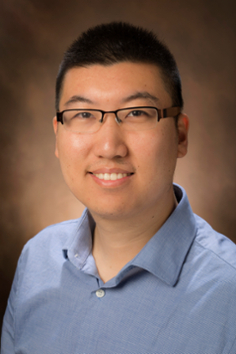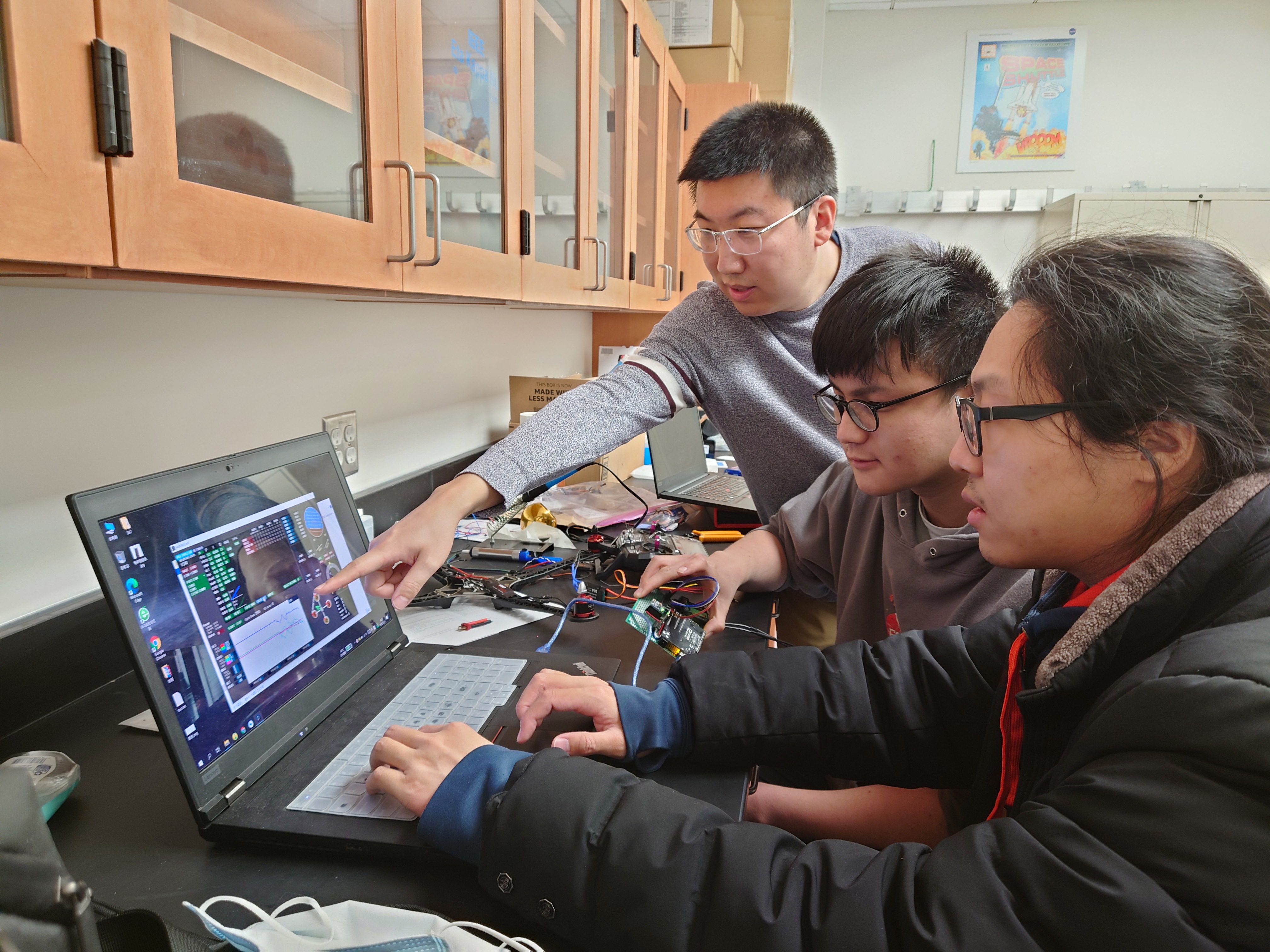Ran Zhang receives NSF grant to study ways to improve wireless network connections

By Gabby Benedict, CEC Reporter
Miami University’s Ran Zhang recently received a $192,785 grant from the National Science Foundation for his project that will focus on drone-based communication networks — a key element in the future of wireless communication networks.

Zhang hopes that the research outcomes that he and his team collect will provide some insights and serve as a benchmark to improve autonomy for dynamic network management by leveraging on the reinforcement learning techniques.
“We want to provide high-quality communication services to anybody at any time and to almost every corner of the earth, which seems quite ambitious,” Zhang said.
In order to achieve this goal, Zhang wants to integrate satellite communications and cellular networks and create not only a large coverage of wireless connection but also a high-quality connection no matter where you go.
Satellites have very large coverage and are used as mobile communication devices, but have a lower quality connection and less reliability due to their distance from the Earth. On the other hand, cellular base stations are stationary and are of high quality, but have a lower coverage due to its inability to move around and cover every surface.
Zhang and his team plan to complete the above network integration by involving drone-based communication networks for on-demand services. The challenges they face include rapidly changing environments, dynamic changing drone crew and power limitation from the drone batteries. Multi-agent reinforcement learning will be exploited as a framework to tackle the above challenges. Solar-powered drones will be also considered to build a self-sustainable network.
Zhang is a participant in Miami's Grant Planning and Support (GPS) program, which supports junior faculty in developing competitive applications for extramural funding programs.
“[Experienced professors] will come to give talks, presentations and seminars. [They help] all the way from how to find the funding opportunities, how to prepare, how to write, and then, after submission, how to communicate with the proven managers of the funding agencies, from all perspectives,” Zhang said.

